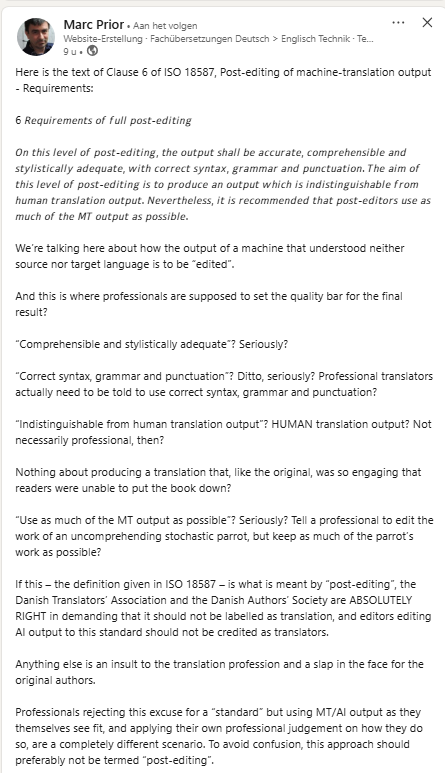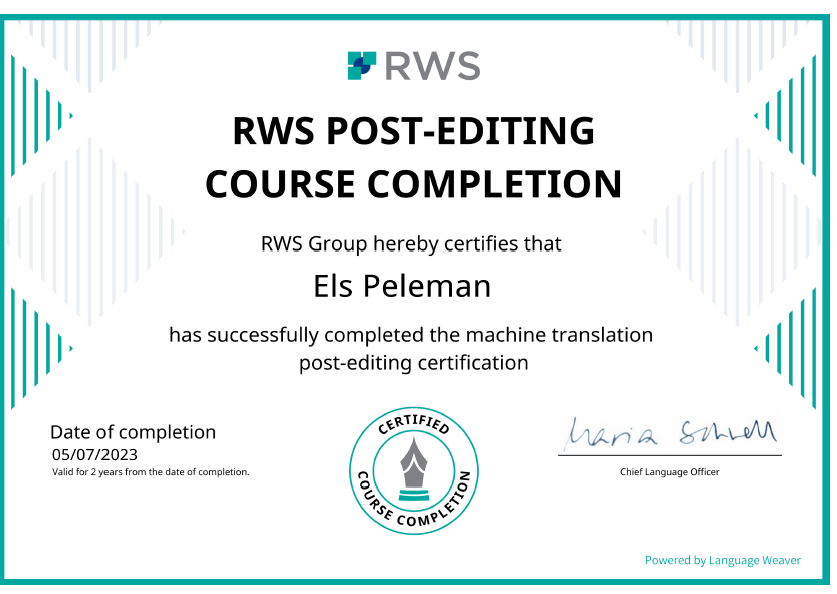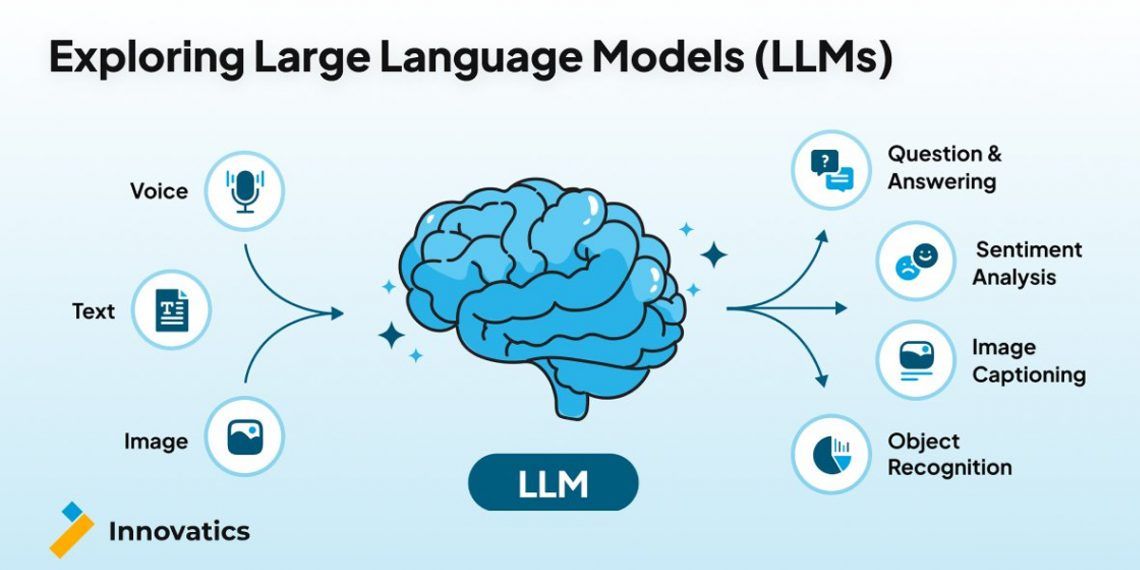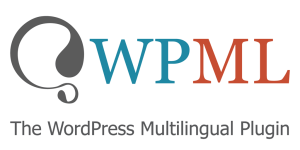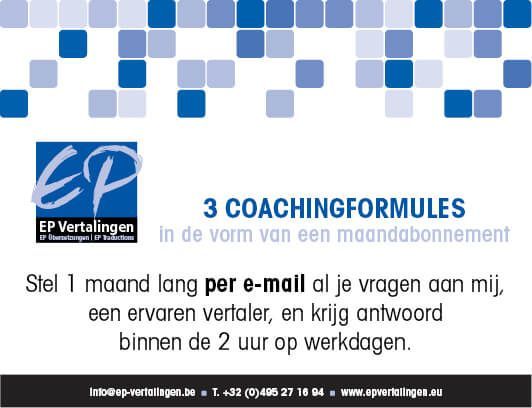If you’re looking for reliable translation agencies for your translation work, you are bound to notice that many major translation businesses are ISO certified. In the translation industry, there are two ISO standards: ISO 17100 and ISO 18587:2017.
ISO = a quality label
ISO is a quality management system. The name says it all: it’s all about quality. The same applies to ISO 17100, but in my opinion to a much lesser extent to 18587, the ISO standard for Post-Editing Machine Translation, abbreviated PEMT.
With the ISO 17100 standard (formerly EN 15038), if you are a client, you can assume that:
- All translators are suitably qualified and undertake Continuing Professional Development (CPD).
- All translations are reviewed by a reviser, i.e. a second translator who reads the translation thoroughly and compares the source and target texts.
Furthermore, translation agencies require post-editors to have a PEMT certificate, but when push comes to shove, everything you learn in such a training is completely useless. It’s not about quality at all. In the RWS Post-Editing Course I followed, the sample situation ticked all the boxes, exactly as it should be, except for the money part.
Moreover, the standard only calls for Full Human Post-Editing, i.e. a truly thorough check by a human (native) translator. Experience has taught me, however, that translators are not given the time or budget to carry out a thorough revision for this type of work. Oftentimes, the post-editing work involves a quick read-through to see if there is anything blatantly wrong.
And yet the agencies claim to be ISO certified, and you, the client, expect a certain level of quality nonetheless...
Good translation work is still done by human translators
For certified agencies under the ISO 17100 standard, the situation is slightly more nuanced. Truly, there are still translation agencies which attach great importance to quality assurance and do everything according to the standard, which means that they work with professional translators who regularly undergo further training and that they implement a real revision round. However, for you the client – and also for the translators themselves – it is difficult to tell which agencies implement quality management rules and which don’t.
Based on my own personal experience, the ISO quality assurance requirements are not met by many translation agencies – especially the very large Language Service Providers that are busy buying up all the smaller ones.
Automated auctioning platform with countdown timers does not contribute to quality (on the contrary)
Many major ISO-certified translation agencies use a platform such as Plunet or XTRF to post jobs. In itself, this is not a problem if a personal email is linked to it, asking whether you as a translator are available to deliver by the given deadline.
But it becomes particularly problematic if by the time you attempt to view the assignment on the platform, the job is already gone. In such a case, how can the agency guarantee that the ‘most qualified translator’ will do the translation, if translators simply take the job without question?
Other translation agencies work with a type of auctioning system involving a countdown timer . If you don’t respond in time, the job will simply go to someone else. Once again, we can wonder if a qualified translator, who may be focused on his or her current work, has the chance to look at the project thoroughly?
My experience is that I, and many other colleagues, won’t touch these types of agencies with a barge pole because this is anything but professional, not to mention a requirement of the ISO standard: the entire translation process should run smoothly.
Other translation agencies state on their websites that they work with ‘qualified translators and reviewers’, but if you are on the other side of the working relationship, you will see as a translator that they do not work with reviewers at all but ‘simply’ do a quick quality check themselves, without even being proficient in either language.
Or they add the following disclaimer on their platform “Please note: this translation is no longer proofread, so be very attentive to errors.” And this while the client really expected a flawless translation, whatever the process may entail.
This client has come to understand that an ISO certification has little meaning. That it is much better to work directly with the translator. Still, the client had to experience it first hand...
The conclusion?
Work directly with the translator if you seek certainty
In my opinion, you don’t need ISO certification at all to get quality. You need a translator who is passionate about his or her craft. A translator who does everything to deliver a flawless translation. Who knows that a revision procedure, possibly even involving some sparring with a reviewer, is absolutely indispensable.
As far as my translation work is concerned, nothing is delivered without being first revised by a second translator. And you can also be sure it won’t be the product of machine translation.
